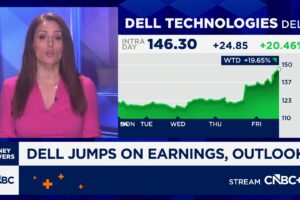<p class="canvas-atom canvas-text Mb(1.0em) Mb(0)–sm Mt(0.8em)–sm" type="text" content="With a net worth of about $55 billion, Mukesh Ambani is one the world's top billionaires and Asia's richest person, according to Forbes. He’s also one of the most influential people in India as he leads Reliance Industries, a retail-to-refining conglomerate that has interests in telecommunications, energy, textiles, retail, and other industries.” data-reactid=”11″>With a net worth of about $55 billion, Mukesh Ambani is one the world’s top billionaires and Asia’s richest person, according to Forbes. He’s also one of the most influential people in India as he leads Reliance Industries, a retail-to-refining conglomerate that has interests in telecommunications, energy, textiles, retail, and other industries.
<p class="canvas-atom canvas-text Mb(1.0em) Mb(0)–sm Mt(0.8em)–sm" type="text" content="Last year, Ambani outlined in a shareholder meeting that he plans to disrupt India’s retail and e-commerce space with the help of small traders, existing retail locations, and the company’s telecommunications user base. He wants to deliver a holistic shopping experience involving offline and online channels that has the potential to upset Amazon (NASDAQ: AMZN) and Walmart‘s (NYSE: WMT) hegemony in the Indian market.” data-reactid=”12″>Last year, Ambani outlined in a shareholder meeting that he plans to disrupt India’s retail and e-commerce space with the help of small traders, existing retail locations, and the company’s telecommunications user base. He wants to deliver a holistic shopping experience involving offline and online channels that has the potential to upset Amazon (NASDAQ: AMZN) and Walmart‘s (NYSE: WMT) hegemony in the Indian market.
It looks like those plans are now in motion, as Reliance Industries’ latest move indicates.


Image source: Getty Images.
Reliance fires its first salvo
<p class="canvas-atom canvas-text Mb(1.0em) Mb(0)–sm Mt(0.8em)–sm" type="text" content="Reliance has been pulling its products from Amazon and Walmart's marketplaces in recent months, as it prepares to launch its own business-to-consumer marketplace later this year. This could affect the two companies' inventories, because of Reliance's partnerships with key suppliers. As reported by The Economic Times:” data-reactid=”27″>Reliance has been pulling its products from Amazon and Walmart’s marketplaces in recent months, as it prepares to launch its own business-to-consumer marketplace later this year. This could affect the two companies’ inventories, because of Reliance’s partnerships with key suppliers. As reported by The Economic Times:
[Reliance] has the highest number of global fashion and lifestyle brands in its stable with around four dozen joint ventures or master franchisee arrangements with international labels including Diesel, Kate Spade, Steve Madden, Burberry, Canali, Emporio Armani, Furla, Jimmy Choo and Marks & Spencer. Many of these brands are sold online on Amazon, Flipkart, Myntra, Jabong and Tata Cliq, among other sites.
It’s now being reported that Reliance Brands, the subsidiary which holds the right to these brands, has been told to stop supplying inventory to third parties, so it can exclusively sell those products on its own platform.
This move will leave Amazon and Walmart with fewer items to offer on their own sites, but this isn’t the only way Reliance can hurt these two market leaders in India.
Reliance’s biggest weapon against Amazon and Walmart
<p class="canvas-atom canvas-text Mb(1.0em) Mb(0)–sm Mt(0.8em)–sm" type="text" content="India's foreign direct investment (FDI) laws are already pitted against Amazon and Walmart. Earlier this year, the Indian government ruled that a vendor sourcing 25% of its inventory from a marketplace platform or any of its subsidiaries will be treated as one controlled by the platform itself.” data-reactid=”33″>India’s foreign direct investment (FDI) laws are already pitted against Amazon and Walmart. Earlier this year, the Indian government ruled that a vendor sourcing 25% of its inventory from a marketplace platform or any of its subsidiaries will be treated as one controlled by the platform itself.
As a result, Flipkart (owned primarily by Walmart) and Amazon can no longer purchase inventory in bulk through their wholesale units and sell it to vendors. Earlier, these vendors used to procure inventories from Amazon and Walmart subsidiaries to sell them on the marketplace.
The Indian government has taken this step to protect the country’s unorganized retail sector, but in the process, it has also hurt the competitiveness of the two retail giants as the rules won’t allow them to procure goods in bulk, restricting their ability to negotiate for discounts that their sellers would ideally pass on to customers.
In effect, Amazon and Walmart can only operate as marketplace platforms in India, and they cannot have any control over inventory. Reliance is a local player, so it doesn’t have to play by the FDI rules — it can control its own inventory and undercut Amazon and Walmart on pricing.
This, however, is not the only advantage for Reliance: It has a massive retail footprint in India. The company’s retail division operates over 10,400 stores in the country, spread across 6,600 cities and towns. In all, Reliance Retail has a footprint of over 22 million square feet of retail space in India, and its revenue increased 89% in the latest fiscal year to nearly $19 billion.
<p class="canvas-atom canvas-text Mb(1.0em) Mb(0)–sm Mt(0.8em)–sm" type="text" content="And that was without any significant online operations. Reliance Retail looks well-placed to combine its existing offline retail business with its up-and-coming online one. This would allow it to deliver a much better omnichannel experience to consumers than Amazon and Flipkart, as the latter two are still working to build up their offline operations. Amazon, for instance, is bringing mom-and-pop stores into the fold as it tries to get a leg up over Walmart. The latter, meanwhile, is also going down a similar path to boost sales.” data-reactid=”42″>And that was without any significant online operations. Reliance Retail looks well-placed to combine its existing offline retail business with its up-and-coming online one. This would allow it to deliver a much better omnichannel experience to consumers than Amazon and Flipkart, as the latter two are still working to build up their offline operations. Amazon, for instance, is bringing mom-and-pop stores into the fold as it tries to get a leg up over Walmart. The latter, meanwhile, is also going down a similar path to boost sales.
<p class="canvas-atom canvas-text Mb(1.0em) Mb(0)–sm Mt(0.8em)–sm" type="text" content="The Economic Times reports that Reliance is looking at a similar strategy of recruiting small traders to advance its e-commerce operations. The existing retail infrastructure should pay off handsomely and give American rivals a run for their money in the region.” data-reactid=”43″>The Economic Times reports that Reliance is looking at a similar strategy of recruiting small traders to advance its e-commerce operations. The existing retail infrastructure should pay off handsomely and give American rivals a run for their money in the region.
<p class="canvas-atom canvas-text Mb(1.0em) Mb(0)–sm Mt(0.8em)–sm" type="text" content=" More From The Motley Fool ” data-reactid=”44″> More From The Motley Fool
<p class="canvas-atom canvas-text Mb(1.0em) Mb(0)–sm Mt(0.8em)–sm" type="text" content="John Mackey, CEO of Whole Foods Market, an Amazon subsidiary, is a member of The Motley Fool’s board of directors. Harsh Chauhan has no position in any of the stocks mentioned. The Motley Fool owns shares of and recommends Amazon. The Motley Fool has a disclosure policy.” data-reactid=”52″>John Mackey, CEO of Whole Foods Market, an Amazon subsidiary, is a member of The Motley Fool’s board of directors. Harsh Chauhan has no position in any of the stocks mentioned. The Motley Fool owns shares of and recommends Amazon. The Motley Fool has a disclosure policy.








